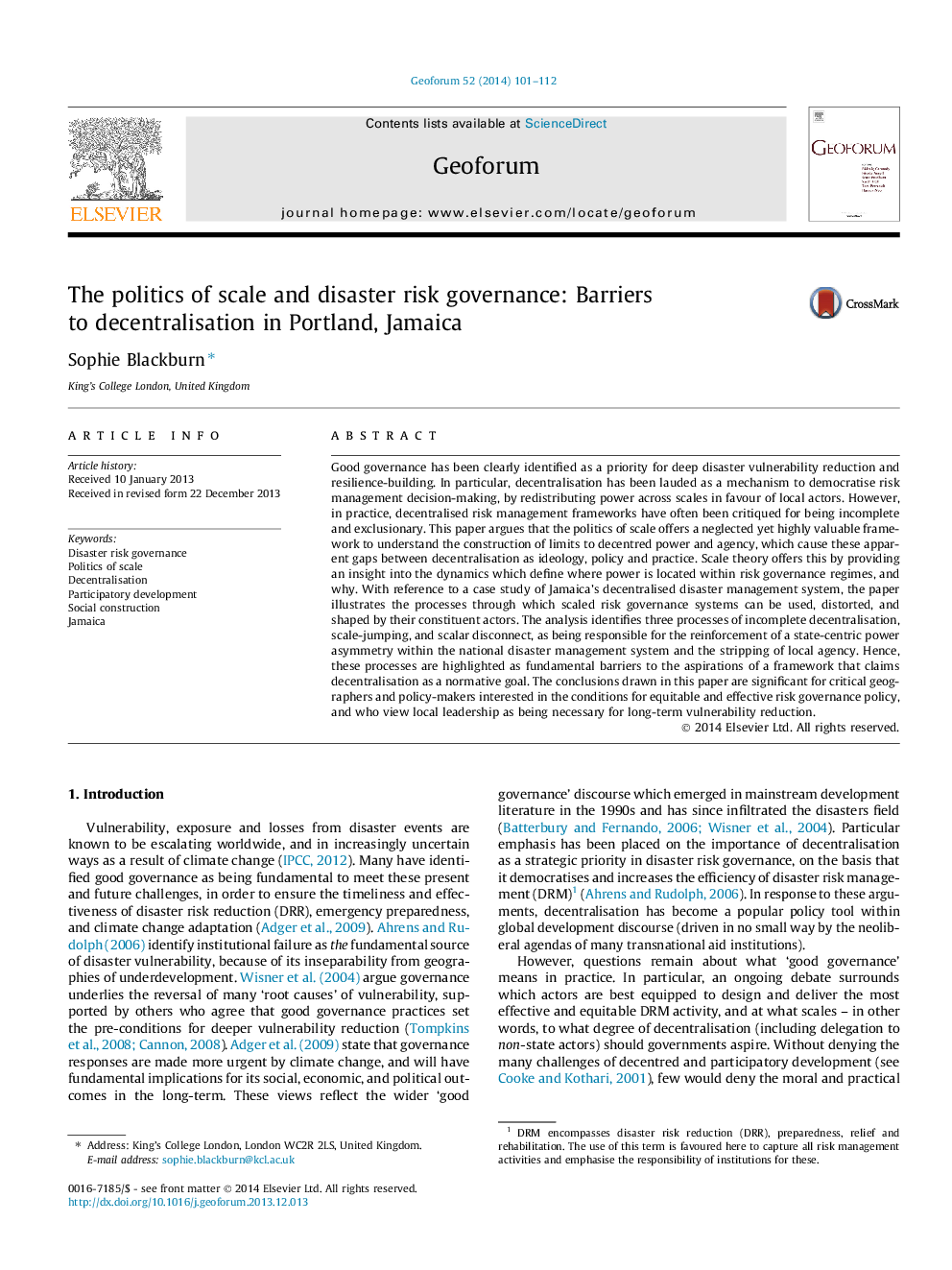| Article ID | Journal | Published Year | Pages | File Type |
|---|---|---|---|---|
| 5074073 | Geoforum | 2014 | 12 Pages |
Abstract
Good governance has been clearly identified as a priority for deep disaster vulnerability reduction and resilience-building. In particular, decentralisation has been lauded as a mechanism to democratise risk management decision-making, by redistributing power across scales in favour of local actors. However, in practice, decentralised risk management frameworks have often been critiqued for being incomplete and exclusionary. This paper argues that the politics of scale offers a neglected yet highly valuable framework to understand the construction of limits to decentred power and agency, which cause these apparent gaps between decentralisation as ideology, policy and practice. Scale theory offers this by providing an insight into the dynamics which define where power is located within risk governance regimes, and why. With reference to a case study of Jamaica's decentralised disaster management system, the paper illustrates the processes through which scaled risk governance systems can be used, distorted, and shaped by their constituent actors. The analysis identifies three processes of incomplete decentralisation, scale-jumping, and scalar disconnect, as being responsible for the reinforcement of a state-centric power asymmetry within the national disaster management system and the stripping of local agency. Hence, these processes are highlighted as fundamental barriers to the aspirations of a framework that claims decentralisation as a normative goal. The conclusions drawn in this paper are significant for critical geographers and policy-makers interested in the conditions for equitable and effective risk governance policy, and who view local leadership as being necessary for long-term vulnerability reduction.
Related Topics
Social Sciences and Humanities
Economics, Econometrics and Finance
Economics and Econometrics
Authors
Sophie Blackburn,
